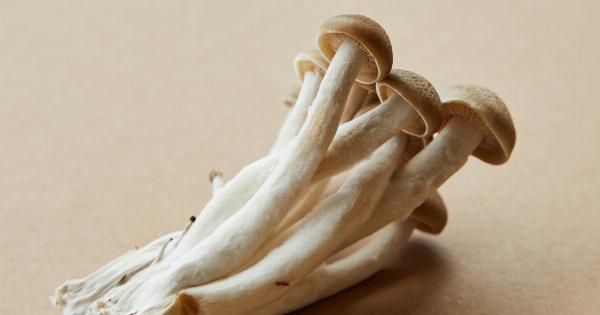Headaches are a common ailment that many people experience at some point in their lives. Whether it’s a dull ache or a throbbing pain, headaches can be debilitating and affect our daily lives.
While there are over-the-counter painkillers available, the use of natural remedies can be an effective and safe alternative. In this article, we will explore the healing power of natural headache remedies and how they can provide relief.
1. Peppermint Oil
Peppermint oil is known for its soothing aroma and cooling sensation. It contains menthol, which helps relax and ease tension in the muscles. Applying a few drops of peppermint oil to the temples can help alleviate headaches.
The refreshing scent can also help reduce nausea, another common symptom associated with headaches.
2. Ginger
Ginger has powerful anti-inflammatory properties, making it a great natural remedy for headaches. It blocks prostaglandins, which are chemicals that promote muscle contractions and cause inflammation in blood vessels.
Consuming ginger tea or chewing on a piece of raw ginger can help reduce the intensity and frequency of headaches.
3. Lavender Oil
Lavender oil is well-known for its calming and relaxing effects. It is believed to help relieve tension headaches and migraines. Applying a few drops of lavender oil to the temples or inhaling its aroma can provide fast relief from headaches.
Additionally, lavender oil can promote better sleep, which is beneficial for managing chronic headaches.
4. Feverfew
Feverfew is a herb commonly used to treat migraines and other types of headaches. It contains compounds called parthenolides, which help reduce inflammation and prevent the constriction of blood vessels.
Feverfew can be taken as a supplement or used to make tea. It is most effective when used consistently to prevent the onset of headaches.
5. Magnesium
Magnesium is an essential mineral that plays a crucial role in various bodily functions. It has been found that magnesium deficiency can contribute to the occurrence of headaches.
Supplementing with magnesium can help reduce the frequency and severity of migraines. Foods rich in magnesium include spinach, almonds, avocados, and beans.
6. Yoga and Meditation
Stress and tension are common triggers for headaches. Engaging in relaxation techniques such as yoga and meditation can help alleviate stress and promote a sense of calmness.
These practices enhance mindfulness and reduce muscle tension, both of which can contribute to headache relief.
7. Acupuncture
Acupuncture is an ancient Chinese practice that involves the insertion of thin needles into specific points in the body. It is believed to help rebalance the flow of energy, known as Qi, within the body.
Acupuncture has been found to be effective in reducing the frequency and intensity of headaches, including migraines.
8. Cayenne Pepper
Cayenne pepper contains a compound called capsaicin, which has pain-relieving properties. It helps reduce the amount of substance P, a neurotransmitter that carries pain signals to the brain. Consuming cayenne pepper can help alleviate headaches.
It is best to start with a small amount and gradually increase the dosage.
9. Hydration
Dehydration can often be a trigger for headaches. Drinking an adequate amount of water throughout the day can help prevent and alleviate headaches. It is recommended to drink at least eight glasses of water daily.
Additionally, consuming foods with high water content, such as watermelon and cucumbers, can contribute to hydration.
10. Eucalyptus Oil
Eucalyptus oil has a cooling effect and can help relieve sinus headaches. Its aroma can help clear nasal passages and reduce congestion.
Diluting a few drops of eucalyptus oil in a carrier oil and massaging it onto the forehead and temples can provide relief from sinus-related headaches.





























